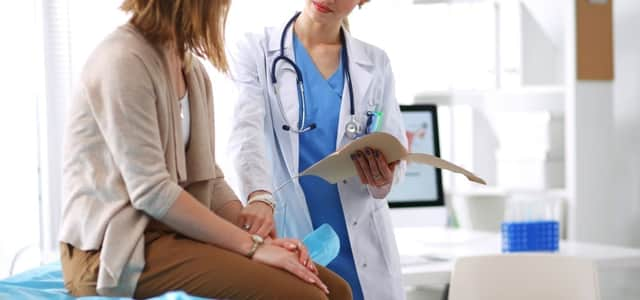GP appointment times could go up to 15 minutes - here’s everything you need to know


Have you ever felt like your doctor's appointments are too short, and that the standard 10 minutes spent with your doctor isn’t enough time?
Well GPs agree with you, saying that the 10 minute slots are too short to be useful.
Advertisement
Advertisement
More face time with the doctor
According to a report by the Royal College of General Practitioners (RCGP), the 10 minute GP consultation should be lengthened to 15 minutes (with more time for patients who need it) by 2030.
Chair of the RCGP Professor Helen Stokes-Lampard said, “It is abundantly clear that the standard 10 minute appointment is unfit for purpose.”
The report from the RCGP also showed figures stating that on average, patient meetings with a GP involve a discussion of two and a half health problems.
“It's increasingly rare for a patient to present with just a single health condition, and we cannot deal with this adequately in 10 minutes,” Professor Stokes-Lampard stated.
Advertisement
Advertisement
She continued, “GPs want to deliver truly holistic care to our patients, considering all the physical, psychological and social factors potentially impacting on their health.
“But this depends on us having more time to spend with patients, and the resources and people to allow up to do this.”
What consultations will look like in the future
The RCGP presented a vision of what the general practice should look like in the future, following a review with 3,000 GPs, health professionals and patients, as well as research, which was commissioned by The King’s Fund.
The report predicted a number of outcomes for the future, including, “An overhaul of the GP-patient record into a personalised 'data dashboard', accessible by healthcare professionals across the NHS, and that will draw on data from the patient's genomic profile and wearable monitoring devices.”
Advertisement
Advertisement
GP practices would also evolve into ‘wellbeing hubs’ with a wider team offering a range of services including clinical and non-clinical. These would also be accessible through digital and video channels.
Doctors surgeries would no longer work in isolation, but instead in networks which would allow them to draw together their resources and people.
Moving forward
Professor Stokes-Lampard said, “If everything is implemented effectively, we are at the dawn of a new era and I'm optimistic that the future of our profession - of the NHS, and patient care - is a bright one.”
The report from the RCGP suggested that for this vision of the future of GPs, general practice would need to receive at least 11 per cent of the NHS budget.
Advertisement
Advertisement
The full time workforce for doctors surgeries would also need to be expanded by the thousands, as well as specialty training to be extended by four years to properly equip trainees with the information needed to treat all the conditions that they may see.
Professor Stokes-Lampard said, “Ours is an ambitious vision but it is not a pipe dream.
“With these building blocks in place we can not only deliver world class, patient-centred primary care, we can ensure that being a GP is the best job in the world.”
This article originally appeared on our sister site Sunderland Echo